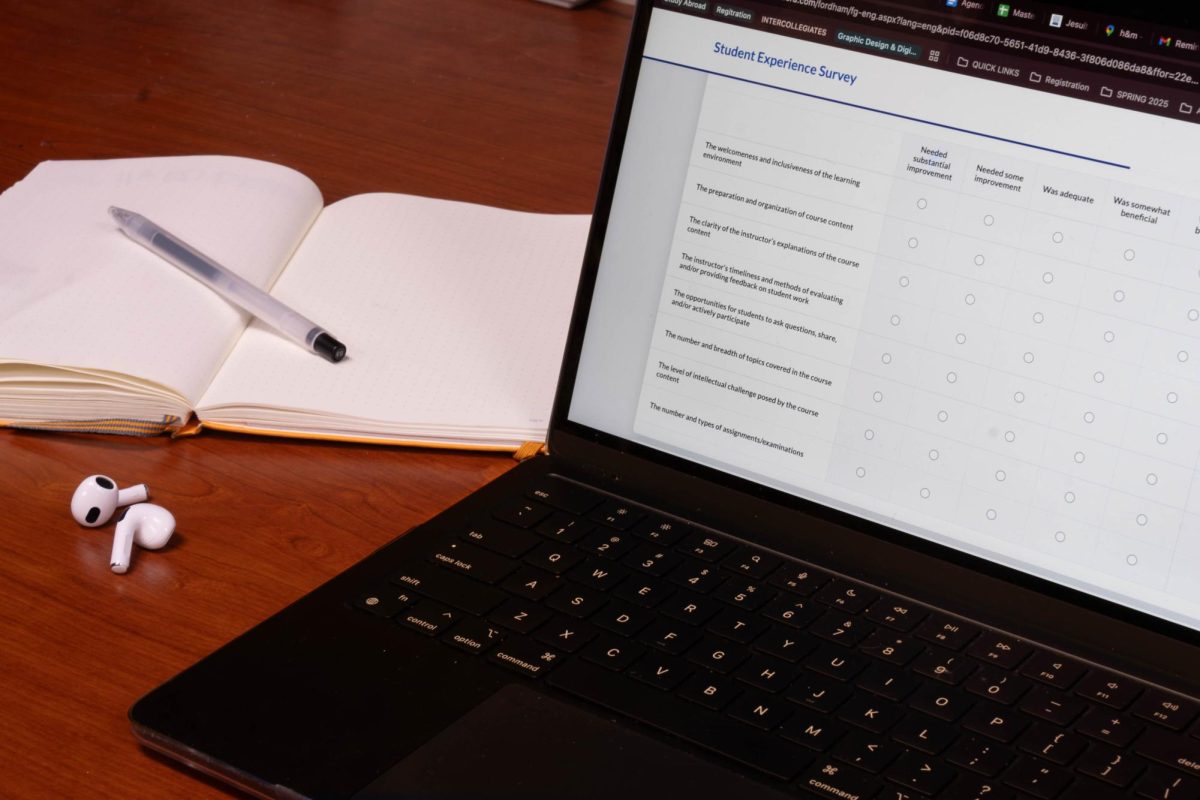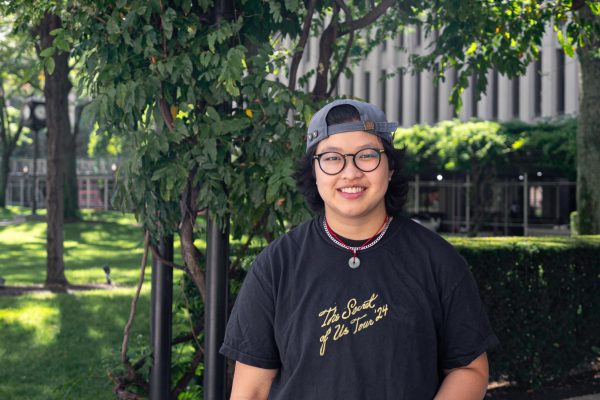Fordham has introduced a new course evaluation system that aims to boost student involvement and provide teachers with concise, actionable feedback.
Encouraging students to reflect on their education rather than only rating their professors and classes helps to embody the university’s Jesuit mission by minimizing areas where bias and misrepresentation can materialize.
The new system, called “Student Experience Survey” (SES) is a triaged version of the older Student Evaluation of Educational Quality (SEEQ). It offers students between 13 and 15 questions to answer, which will take substantially less time to complete while providing valuable information. Students will be asked to verify their course participationon a rating scale along with the narrative feedback submission. A number of additional questions devoted to study time and preparatory time for the course have also been integrated.
Students are encouraged to self-evaluate their experiences in the course by providing quantitative and qualitative assessments.
The older system became outdated and tedious, according to Dr. Sharif Mowlabocus, Faculty Evaluation Committee member and chair of the Department of Communication and Media Studies.
“The first thing we can say about the SEEQ is it’s long. There are 41 questions. I don’t know about you, but when I start to fill in a survey and it gets long, I kind of drift off,” Mowlabocus said.
Students are encouraged to self-evaluate their experiences in the course by providing quantitative and qualitative assessments.
“The SEEQ was almost entirely about the professor. But the SES also asks students to reflect on their own engagement — how much time they spent preparing for class, how they approached assignments,” Mowlabocus said. “That is more aligned with our Jesuit mission and the kind of education we’re trying to foster.”
The older SEEQ questions were sometimes seen as irrelevant to actual learning outcomes. One prompt, for example, asked students to rate the professor’s sense of humor.
“I mean, what if my sense of humor does not match yours? Should I mark you down for that?” Mowlabocus said. “We asked ourselves: Why are we even asking about that? That’s not really important.”
The SES was piloted with tenure-track faculty in the fall of 2024 and showed promising results from students, with higher numbers of students completing the shorter form. Faculty members also received more qualitative feedback in this trial.
“We found that roughly the same number of students started the SES as the SEEQ. But far more of them actually finished it,” Mowlabocus said. “And we saw more written feedback, too, which was exciting.”
With the Faculty Evaluation Committee’s recommendation, Fordham’s Arts and Sciences Council officially voted to adopt the SES beginning in Spring 2025.
Mowlabocus emphasized that evaluations are used during faculty reappointments and play an essential role in professional development.
“When students give specific, thoughtful comments, it really helps us grow — and it influences what happens in the classroom going forward.” Dr. Sharif Mowlabocus, Faculty Evaluation Committee Member and Chair of the Department of Communication and Media Studies
“Every faculty member goes through a reappointment process, and we look to student evaluations as a key data point,” Mowlabocus said. “When students give specific, thoughtful comments, it really helps us grow — and it influences what happens in the classroom going forward.”
Mowlabocus also noted that evaluations can directly impact the way courses are taught.
“I want to know if that new module I introduced actually worked. Or if students thought my assessments were confusing. I cannot fix what I don’t know,” Mowlabocus said.
Students can also benefit from completing evaluations. Past course evaluations are visible on the Fordham student portal if a course has enough responses.
“Fordham is great at making resources available. But we’re not always great at telling students where to find them,” Mowlabocus said. “If more people fill out the SES, it means future students can make better decisions about what classes to take.”
Ultimately, Mowlabocus said he hopes for students to see the SES not as a chore, but as a meaningful opportunity to share about their educational experiences.
“Your voice really does matter. When you take the SES seriously, you’re not just helping your professor — you’re helping your classmates, your future self and the university as a whole,” Mowlabocus said.
Completing this survey will help you and the next cohort of students determine which courses to take, while also helping to celebrate the faculty who are doing especially well.



